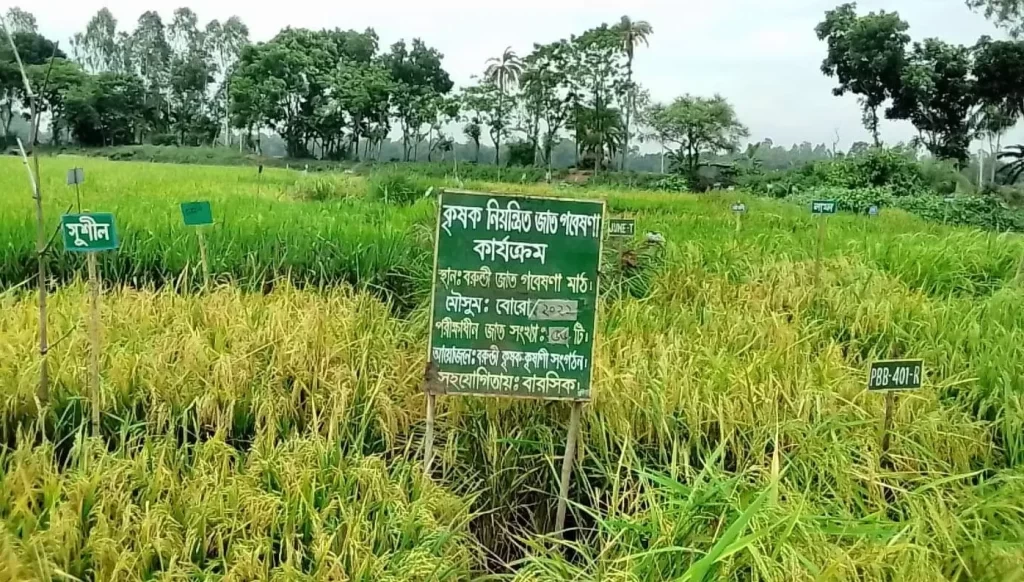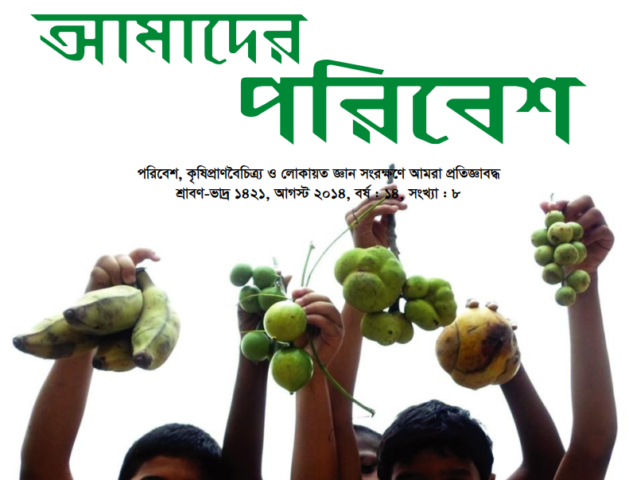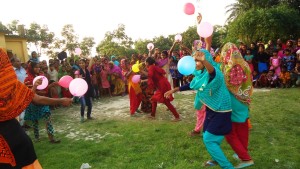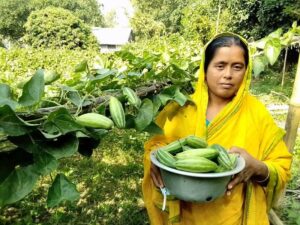Md. Masudur Rahman from Manikganj
BARCIK has been facilitating farmers in its working areas to find out local varieties of crops which are adaptable to changed climate, produce good yields and not require much water and other external inputs (Chemical fertilizers, pesticides) through its action research jointly conducted by the staff of the organization and the farmers. This action research helps the farmers to collect and conserve their own seeds rather than depending on market seeds. It also helps them to select varieties suitable in their perspective areas. Having seeds in their store these farmers can easily farm different crops in different seasons. Besides, through the joint action research the farmers have been able to protect some the local varieties which are in the edge of extinction.
However, during the Boro season farmers of this action research initiatives have planted seedlings in Nayabari, Burundi, Sarupai and Bangra villages under the supervision of members of Krishak Researcher Forum in 3 main plots consisting of 51 rice varieties, one variety conservation plot and 2 seed breeding plots. The Krishak Researcher Forum has been formed to oversee the research as well as to unite the farmers.
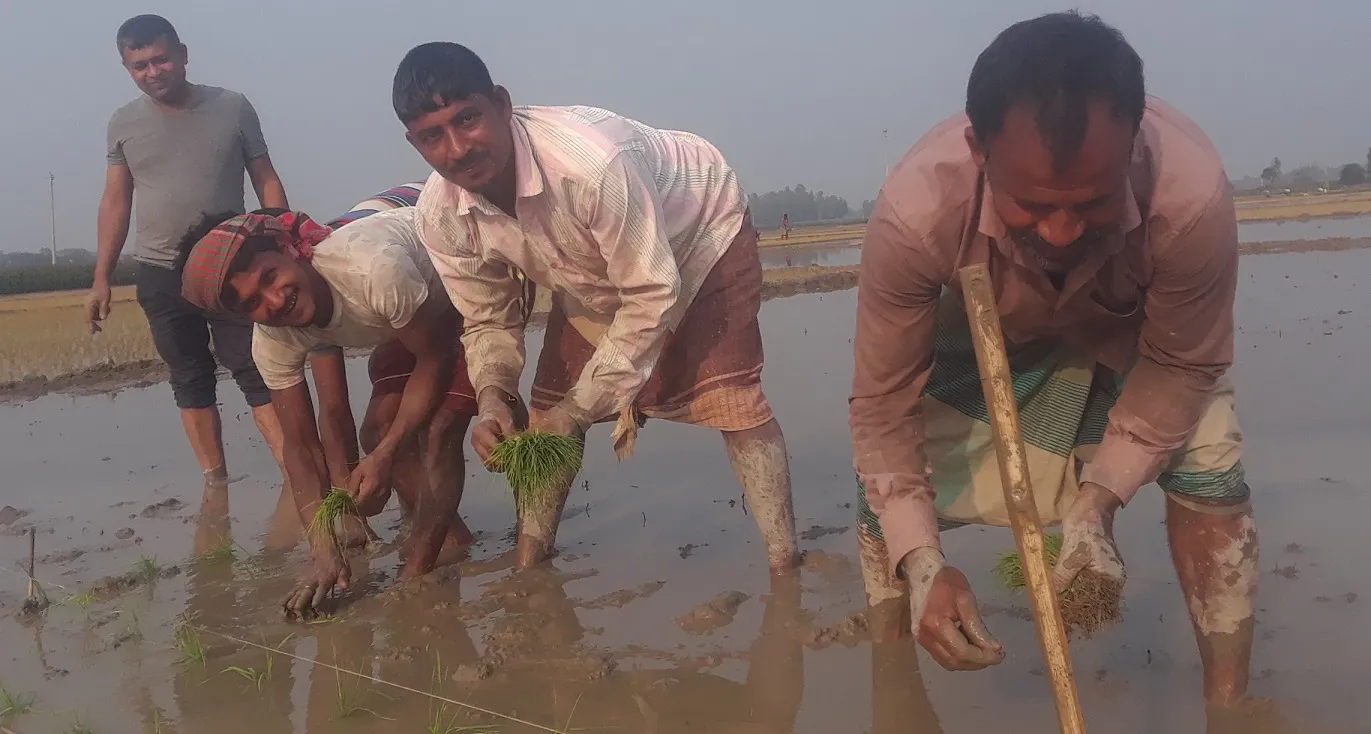
Adarjan Begum, speaking on behalf of the farmers under the research initiatives said, ‘This year I have helped 3 people with 15 kg of seeds and planted 3 those seeds in bighas of land as there is demand for more seeds.’
Nonetheless, analyzing the results of the last 8 years of Farmers-BARCIK joint research initiatives, it has been seen that in the Boro season of 2014, trial had been conducted with 8 varieties at Irmara village. Among the 8 varieties Maqbul, Kaishabinni and Rajbhog varieties of paddy have been selected by the farmers of the area. Meanwhile, in the 2015 Boro trial was conducted with 13 varieties and of them Basmati rice variety has been selected by the farmer. In 2016 trial was conducted with 8 varieties and farmers selected Kaishabinni rice varieties. This varieties has gained wide popularity in the area, with a production of 5.44 tons per hectare.
Meanwhile, in the Boro season of 2017, trial was conducted with 8 varieties and farmers selected Kuchmuch, M-252, Mainatia and Maqbul varieties of paddy for their areas. Besides, on the field day that was held to introduce the varieties to farmers, 20 farmers demanded Maqbool and Mainatia varieties of paddy seeds. The production of Maqbool variety per hectare is 8.19 tons. It is to be noted that Monatia variety is very suitable for making fried rice. This variety is being cultivated at farmer level in several villages including Ayramara, Kaitara, Baitara, Brikaliakair, Nayapara, Chhotakaliakair.
On the other hand, during 2018 trial was conducted with 6 varieties paddy and farmers selected Baurani and Darshail varieties of paddy for their perspective areas. Baurani produces 10.15 tons per hectare of land while Darshail produces 9.50 tons per hectare.
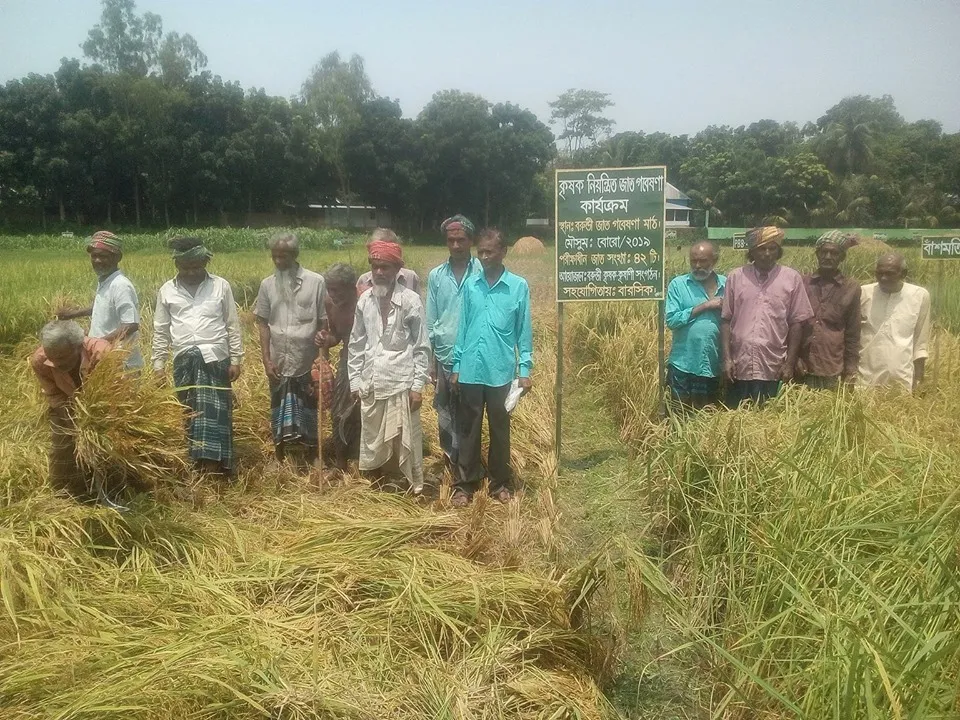
It is to be mentioned that Farmers-BARCIK joint research team conducted varietals selection with 6 varieties at Naya Bari village in 2019 to select area suitable varieties for the farmers in that areas. But due to climate change induced disasters such as extreme temperatures during that time some of the varieties did not perform well. But farmers have been able to select a variety named Jun-T among of those varieties. The Jun-T varieties performed well in spite of the drought situation leading farmers to select this varieties as one of the drought tolerant varieties. Farmers observed that the root length of June variety is much longer than other varieties and the water content was less than other varieties. Besides, the number of nuts fed per head was 106 and the number of breed affected to cold injury was only 22. This varieties can produce 6.19 tons per hectare of lands opined by the farmers. Considering the above reasons, 28 farmers prefer the June-T variety.
Additionally, trial was conducted with 9 varieties during the Boro season in 2020. Farmers of the areas selected the ‘Sushil’ (invented by the farmer) variety among those 9. This variety has gained popularity among the farmers as it was thinner and more productive. This variety produces 9.17 tons per hectare. In 2021, trial was conducted with 9 varieties during the Boro season at Nayabari village. Farmers selected basmati (Pakistani) variety due to its fragrance and it is comparatively thin. This variety produces11.14 tons per hectare.
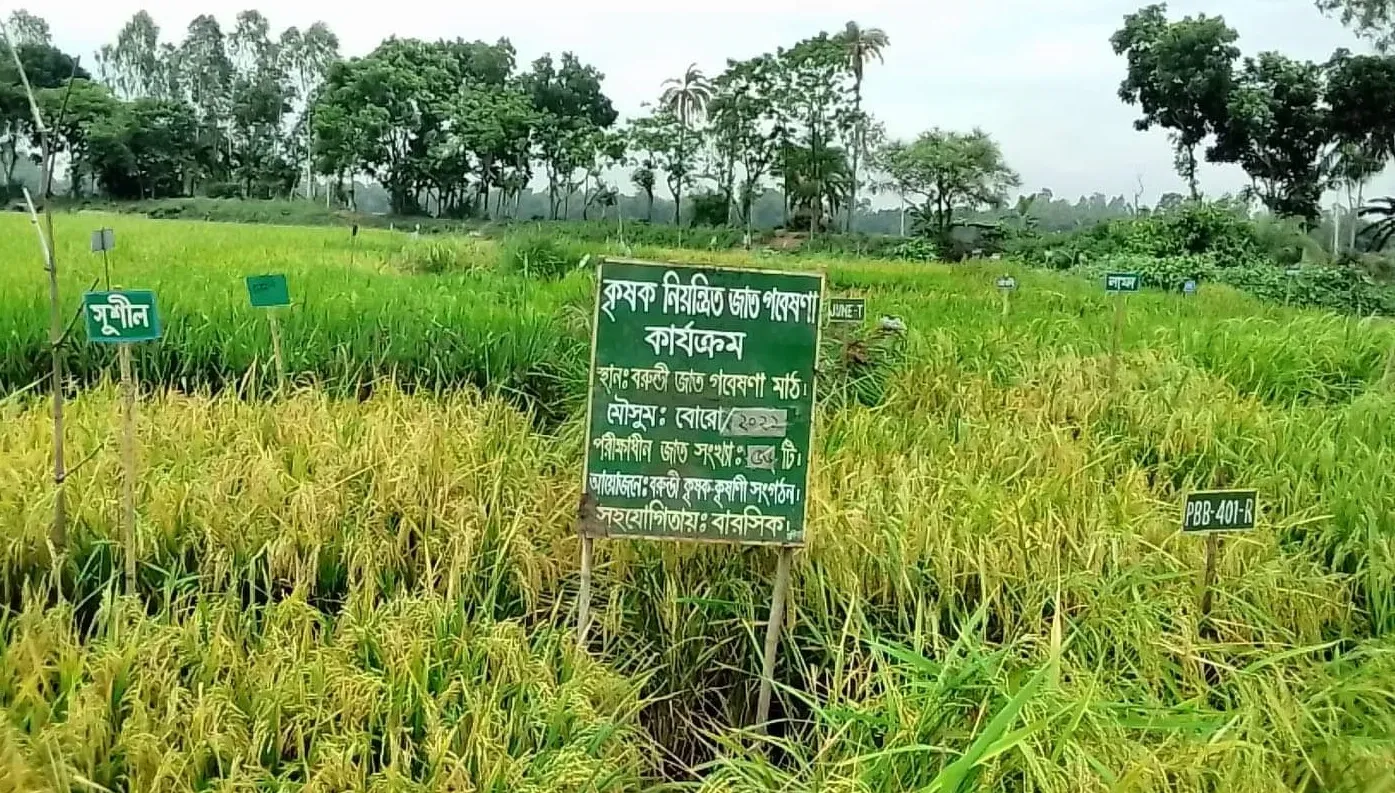
While describing the importance and necessity of the joint action research to find and select area suitable and climate adaptable varieties, Masood Biswas, convener of the Farmer Research Forum, said, ‘The number of rice varieties which came under the trial has increased this year and multi-site testing is planned to select suitable rice varieties for the area to tackle climate change.’ He went on saying, ‘The research has helped farmers to revive some of the local varieties which are adaptable to the local climate. Thus, this help the farmers to mitigate risks during the farming season as seeds are available to them and they can farm the varieties which can tolerate the climate change induced disasters.’
Translated by Silvanus Lamin

